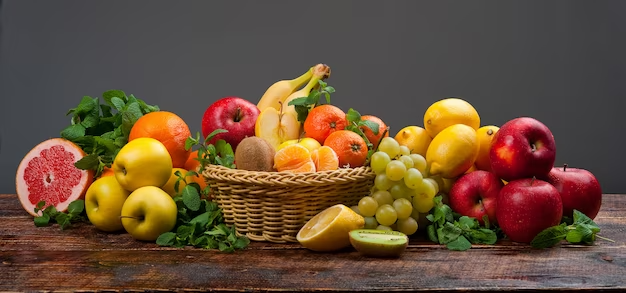Fruits are typically thought of as a summertime food. However, you might be surprised to learn that there are lots of options for fresh, healthy fruit available all winter.
In the US, the winter months are when citrus is at its peak, but Everyday Health notes that numerous other fruits can help strengthen your immune system and give you a vitamin boost. Take a look at these seven winter-friendly fruits.
According to The Spruce Eats, fresh citrus fruits like oranges, tangerines, clementines, grapefruit, and lemons are available all winter. Vitamin C, which is abundant in oranges and other citrus fruits, aids in the production of white blood cells in the body, which aid in the defense against bacteria and viruses. A single orange has 82 milligrams of vitamin C. Not only that, but citrus fruits also have a high fiber content.
Grapefruits contain lycopene, an antioxidant that can help protect your cells from oxidation, which can cause chronic diseases like some cancers and poor general health.
Table of Contents
Strawberries
Because of the vitamins and minerals they contain, these juicy berries are considered superfruits. Strawberries contain antioxidants that may help prevent diabetes and cardiovascular disease, among other chronic illnesses. For diabetics, these berries are especially beneficial, as the fruit may aid in blood sugar regulation. In addition, strawberries are an excellent source of water.

Pears
This late-fall or winter fruit is excellent for your digestive system. That’s because its fiber content is close to six grams. Because fiber promotes the growth of the microbiome, or beneficial bacteria, in your stomach, it is essential to your immune system. Both inflammation and immune system strength are enhanced by fiber. A fantastic fruit to have on hand during the winter months is pears.

Pomegranates
This colorful and festive fruit is a great source of fiber and vitamin C, even in just one cup. Additionally high in vitamin K, which supports healthy bones and blood clotting, are pomegranates. Additionally, the fruit has antibacterial and antiviral qualities. Pomegranates are among the healthiest fruits available, in actuality.

Pineapple
This tasty tropical fruit provides 78.9 mg of vitamin C per cup, making it an excellent source of the vitamin. This incredibly nutrient-dense fruit also includes folate, iron, magnesium, phosphorus, and zinc, as well as the vitamins A, B6, E, and K. Other health advantages of pineapples include their anti-inflammatory, antioxidant, and digestive-system-supporting bromelain content.

Kiwi
This fruit, which thrives in cold climates, is rich in antioxidants, iron, fiber, and vitamins C, K, and E, according to News 18. Iron, copper, zinc, magnesium, potassium, calcium, and phosphorus are among the other minerals found in these tiny jewels. In addition to supporting heart and skin health, eating kiwis may help prevent vision loss.

Cranberries
This classic wintertime treat is high in nutrients and a good source of vitamin C. Cranberries have been shown in a review of research published in Advances in Nutrition to help lower cholesterol and may even prevent coronary artery disease. These tiny red berries have many other therapeutic benefits in addition to supporting intestinal health.Savor dried or fresh cranberries.

if you would like to read about Best Next Level Sports Nutrition in 2023, Click Here



